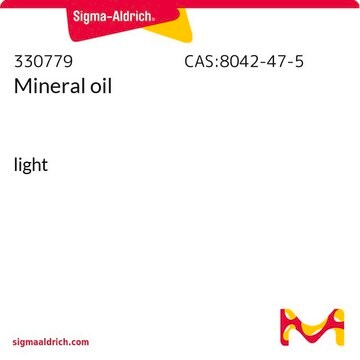W358118
3-Octanol
≥97%, FCC, FG
Synonym(s):
Ethyl pentyl carbinol
About This Item
Recommended Products
biological source
synthetic
Quality Level
grade
FG
Halal
Kosher
Agency
meets purity specifications of JECFA
reg. compliance
EU Regulation 1334/2008 & 178/2002
FCC
FDA 21 CFR 172.515
vapor density
~4.5 (vs air)
vapor pressure
~1 mmHg ( 20 °C)
Assay
≥97%
refractive index
n20/D 1.426 (lit.)
bp
174-176 °C (lit.)
density
0.818 g/mL at 25 °C (lit.)
application(s)
flavors and fragrances
Documentation
see Safety & Documentation for available documents
food allergen
no known allergens
Organoleptic
creamy; mushroom; musty; earthy; minty; waxy
SMILES string
CCCCCC(O)CC
InChI
1S/C8H18O/c1-3-5-6-7-8(9)4-2/h8-9H,3-7H2,1-2H3
InChI key
NMRPBPVERJPACX-UHFFFAOYSA-N
Looking for similar products? Visit Product Comparison Guide
Related Categories
Application
- RIFM fragrance ingredient safety assessment, 3-octanol, CAS Registry Number 589-98-0: This safety assessment review offers a thorough examination of 3-Octanol′s application in the fragrance industry, discussing its solvent properties, safety, and handling in laboratory settings, thus serving as a critical reference for researchers focused on industrial applications and safety of fragrance ingredients (Api et al., 2021).
Biochem/physiol Actions
Other Notes
Signal Word
Warning
Hazard Statements
Precautionary Statements
Hazard Classifications
Eye Irrit. 2
Storage Class Code
10 - Combustible liquids
WGK
WGK 2
Flash Point(F)
154.4 °F
Flash Point(C)
68 °C
Personal Protective Equipment
Regulatory Listings
Regulatory Listings are mainly provided for chemical products. Only limited information can be provided here for non-chemical products. No entry means none of the components are listed. It is the user’s obligation to ensure the safe and legal use of the product.
FSL
Group 4: Flammable liquids
Type 2 petroleums
Hazardous rank III
Water insoluble liquid
JAN Code
W358118-BULK-K:
W358118-1KG-K:4548173979113
W358118-100G:
W358118-8KG:
W358118-SAMPLE:
W358118-1KG:
W358118-8KG-K:4548173979120
W358118-SAMPLE-K:
W358118-VAR-K:
W358118-100G-K:4548173979106
Choose from one of the most recent versions:
Already Own This Product?
Find documentation for the products that you have recently purchased in the Document Library.
Customers Also Viewed
Our team of scientists has experience in all areas of research including Life Science, Material Science, Chemical Synthesis, Chromatography, Analytical and many others.
Contact Technical Service











